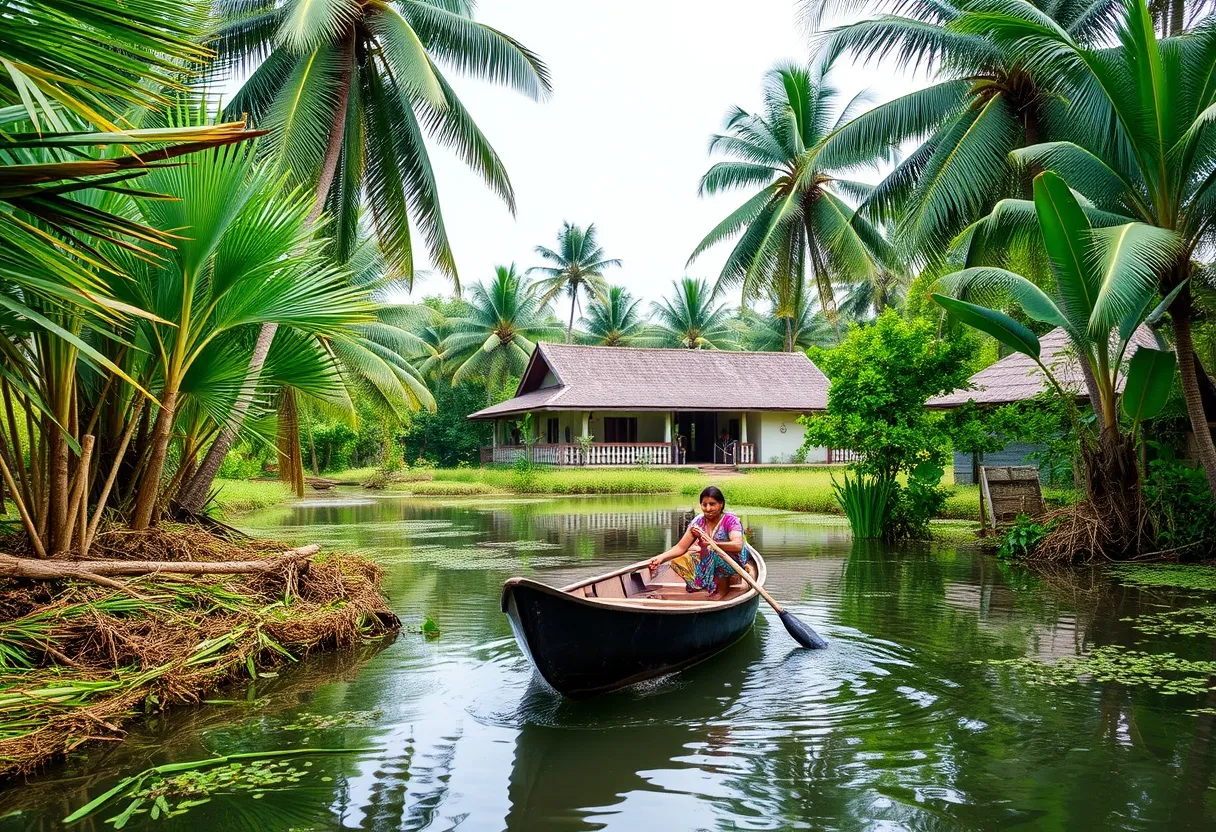
Houseboat Cruises in Kerala: A Complete Travel Guide
Houseboat Cruises in Kerala: A Complete Travel Guide Explore Kerala’s tranquil backwaters on a houseboat
Discover the verdant beauty of Alleppey’s coconut plantations. Our tours offer a unique opportunity to immerse yourself in the agrarian culture of Kerala, learning about the vital role coconuts play in the local economy and culture. Experience the serene landscapes and meet the dedicated farmers who bring this staple to life.
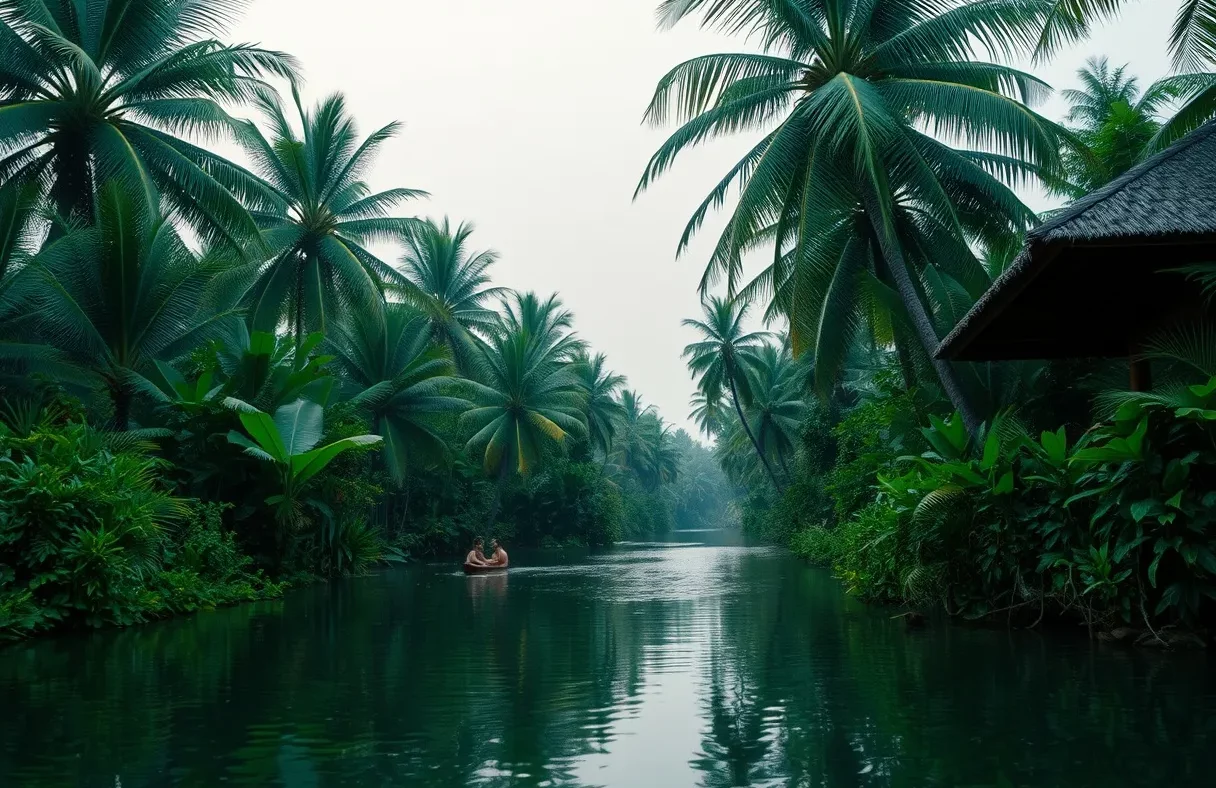
Apart from its serene backwaters, Alleppey is also known for its verdant coconut plantations. And offers tourists unique opportunities to immerse themselves in the agrarian coconut culture of the region through its coconut plantation tours. These tours not only showcase the natural beauty of Kerala but also provide insight into the lives of the local farmers and the significance of coconuts in the region’s economy and culture.
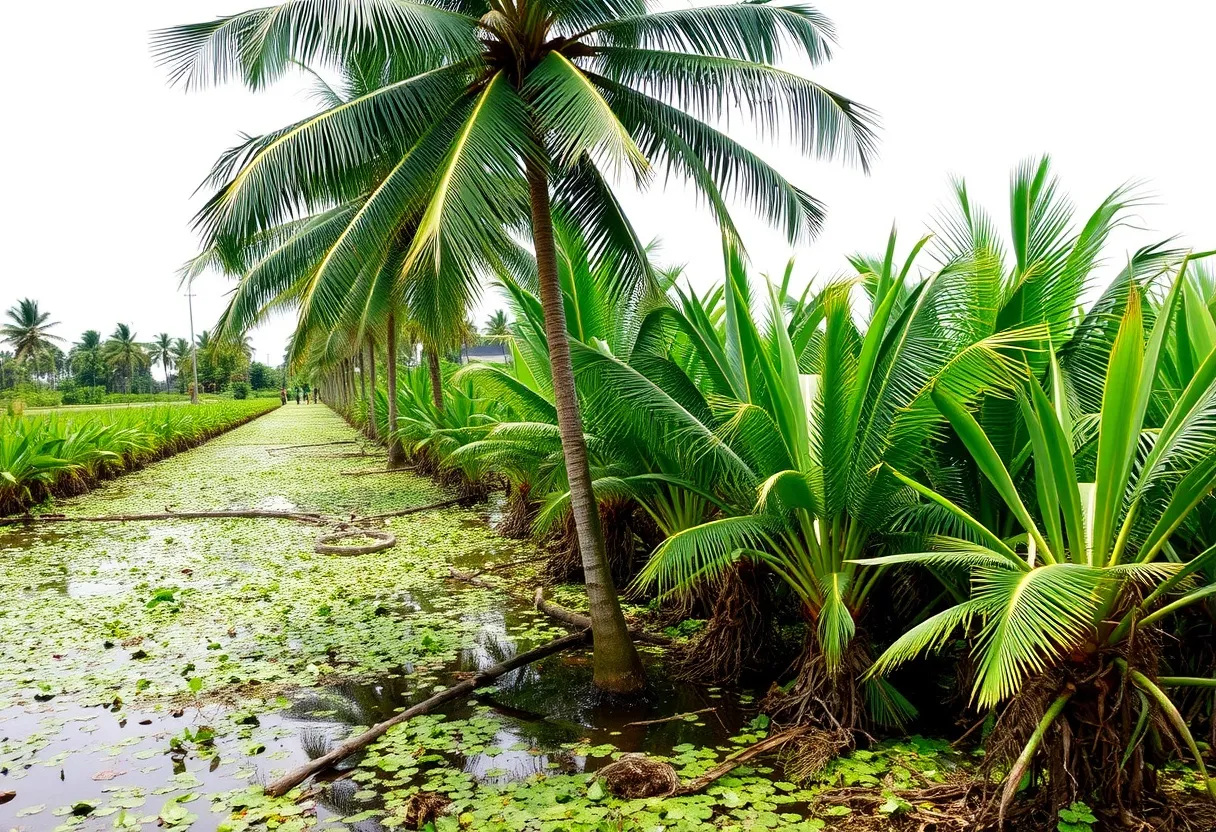
Kerala’s name itself is derived from “Kera,” the Malayalam word for coconut. This palm tree holds a central place in the lives of the people of the state and has earned the state the nickname of “Land of Coconuts.” From its versatile culinary uses to its role in traditional medicine, handicrafts, and rituals, the coconut fruit is integral to Kerala’s identity. The sprawling coconut plantations of Alleppey testify to this cultural and economic bond.
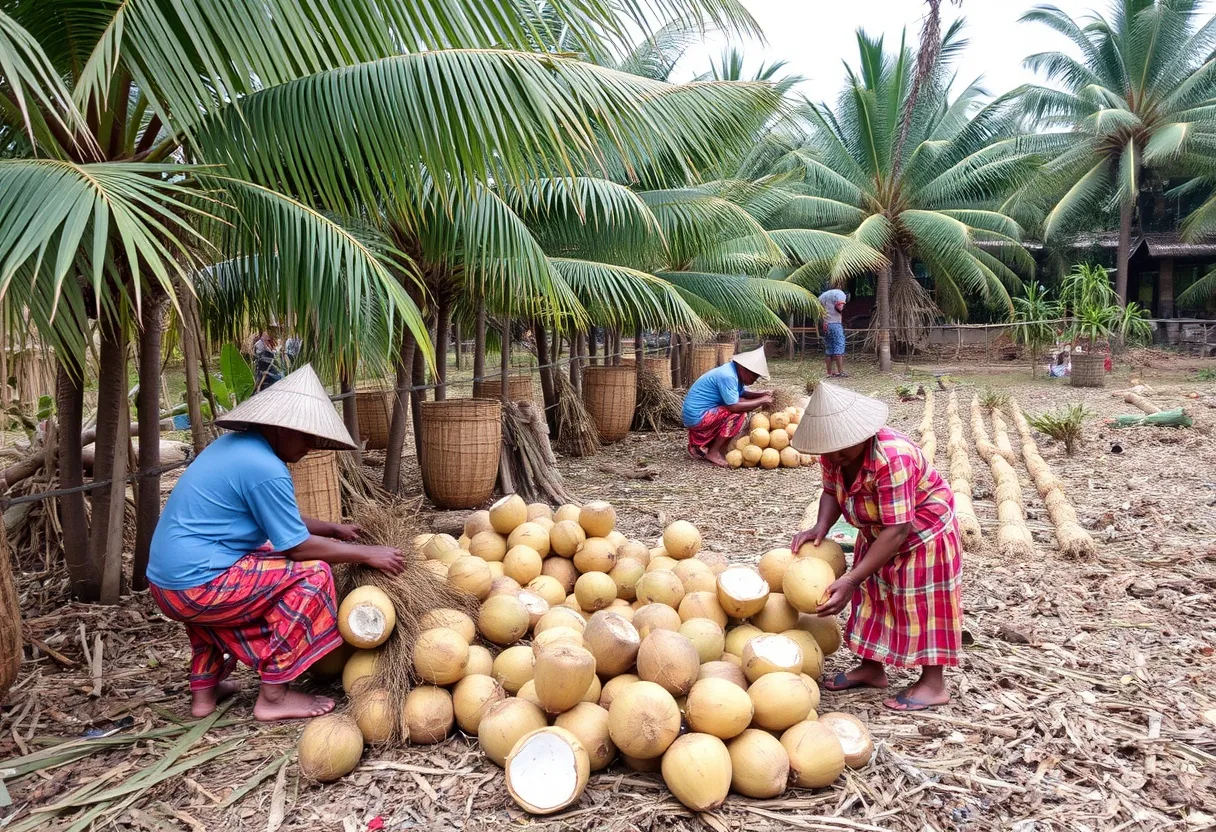
The coconut cultivation and coir industry provides a major source of income for farmers in Alleppey and nearby areas. Every part of the coconut tree is utilized— from coconut water, which serves as a refreshing drink to coconut flesh, which is sprinkled in local delicacies, the oil being used for cooking and added in beauty products, to the husks, which are used for coir production, and leaves for roofing or decoration. Plantation tours allow visitors to witness firsthand how these versatile palms are nurtured and harvested.
Coconut plantation tours throw light on Kerala’s agrarian lifestyle and sustainable farming practices. They are organized in picturesque rural settings surrounded by tranquil backwaters, where the swaying palms create a postcard-perfect backdrop to many click-worthy snapshots.
These tours take the visitors through the meticulous process of coconut farming, from planting and nurturing the trees to harvesting coconuts using traditional methods. Farmers often demonstrate how they skillfully climb tall coconut palms using…
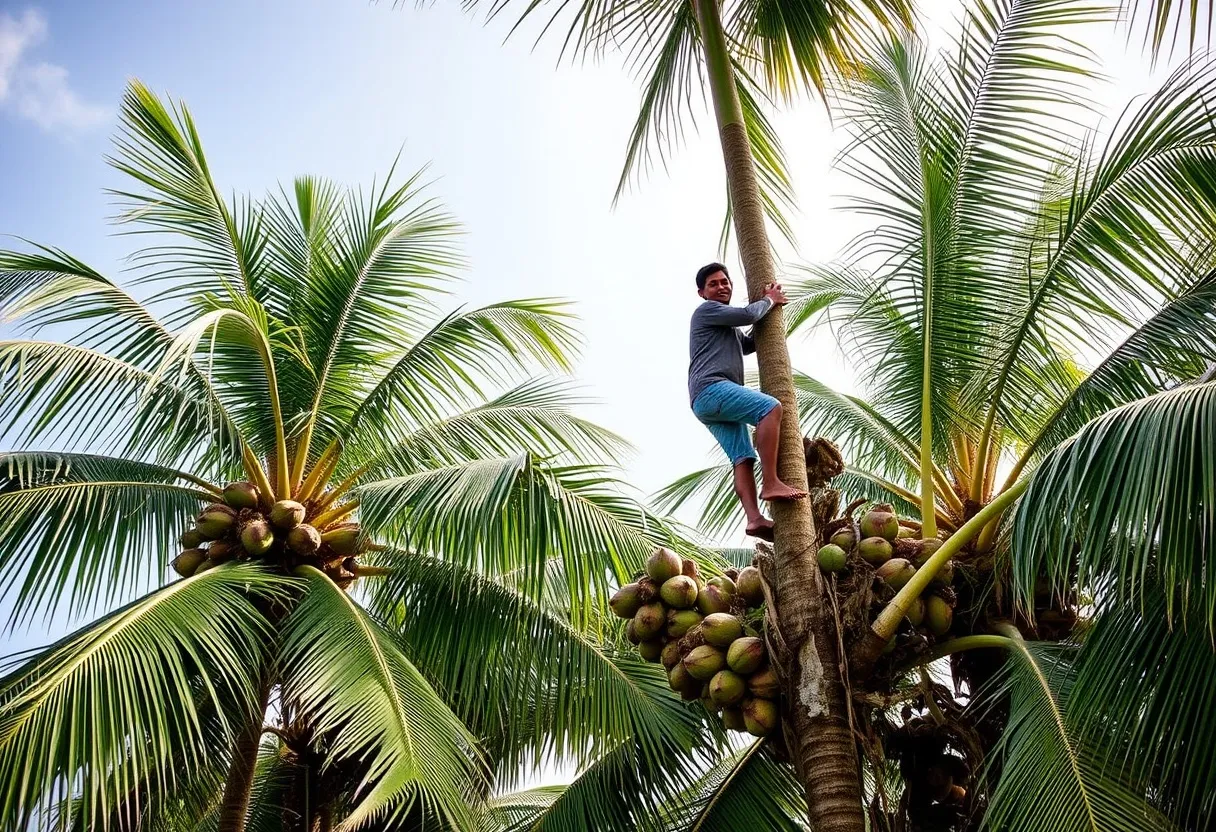
…coir ropes, a fascinating skill that has been passed down through generations. Other tours also include interactive sessions where visitors learn how to de-husk coconuts, extract fresh coconut water, and make coconut-based products like oil or milk. The tours are thus as educational as they are enjoyable.
Coconut Tasting Experiences
Visitors are also treated to fresh coconut water and tender coconut flesh during these plantation tours.

You can taste the water and flesh directly from freshly plucked coconuts, making this an authentic farm-to-table experience.
Traditional Coir Making
Many plantation tours include visits to coir workshops, where visitors can watch the fascinating process of coir extraction and weaving.
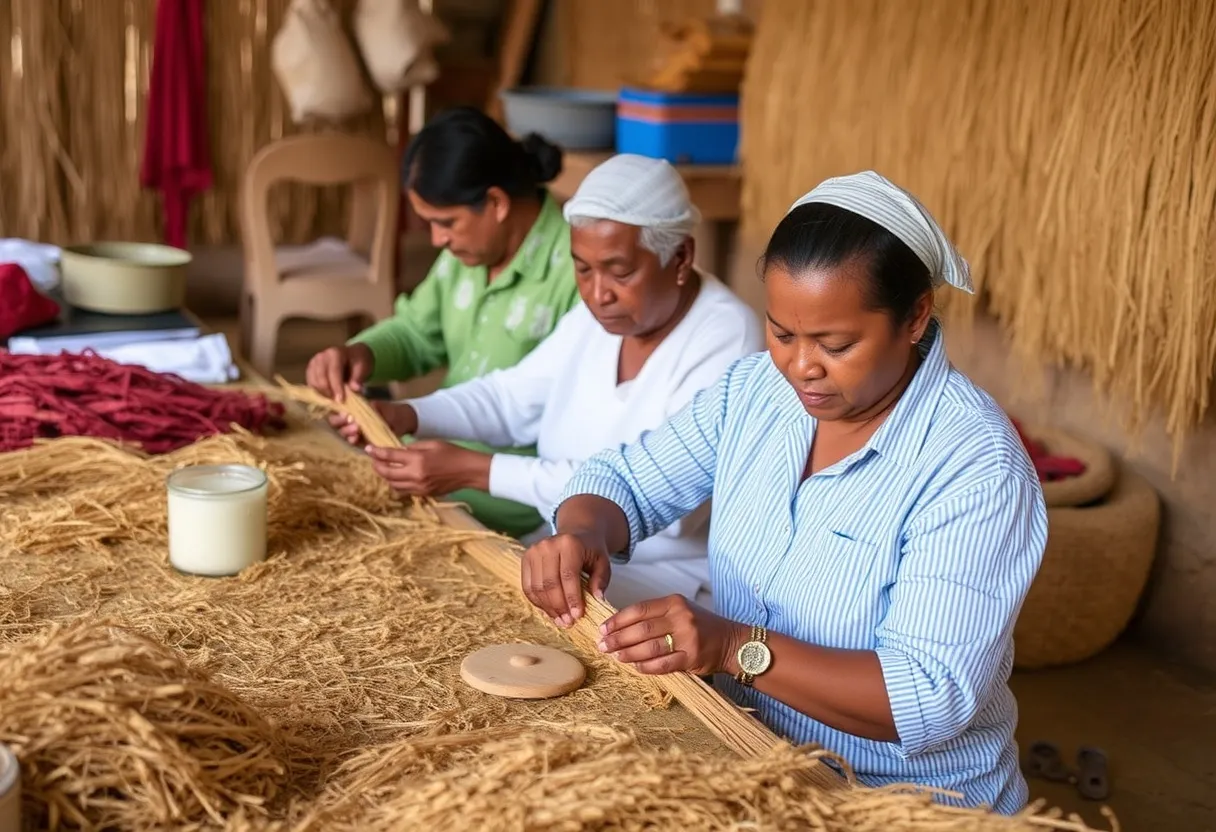
Cooking Demonstrations
Some plantations also organize cooking classes showing visitors the process that goes into making Kerala’s famous coconut-based dishes,
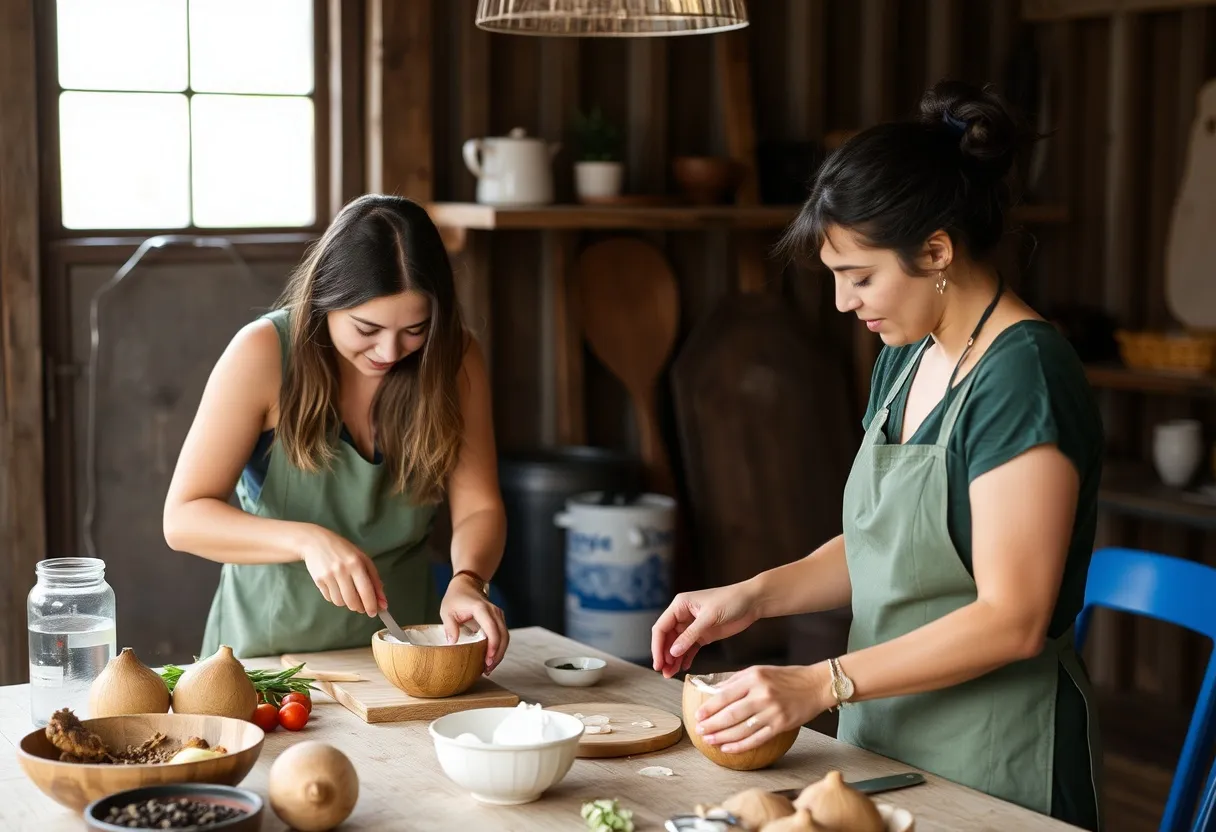
such as Avial, Thoran, and Puttu, where coconut is the principal ingredient. Visitors learn how to put coconut milk, grated coconut, or coconut oil into these tasty recipes.
Boating Along the Backwaters
Since many plantations in Alleppey lie in close proximity to the serene backwaters, visitors can.
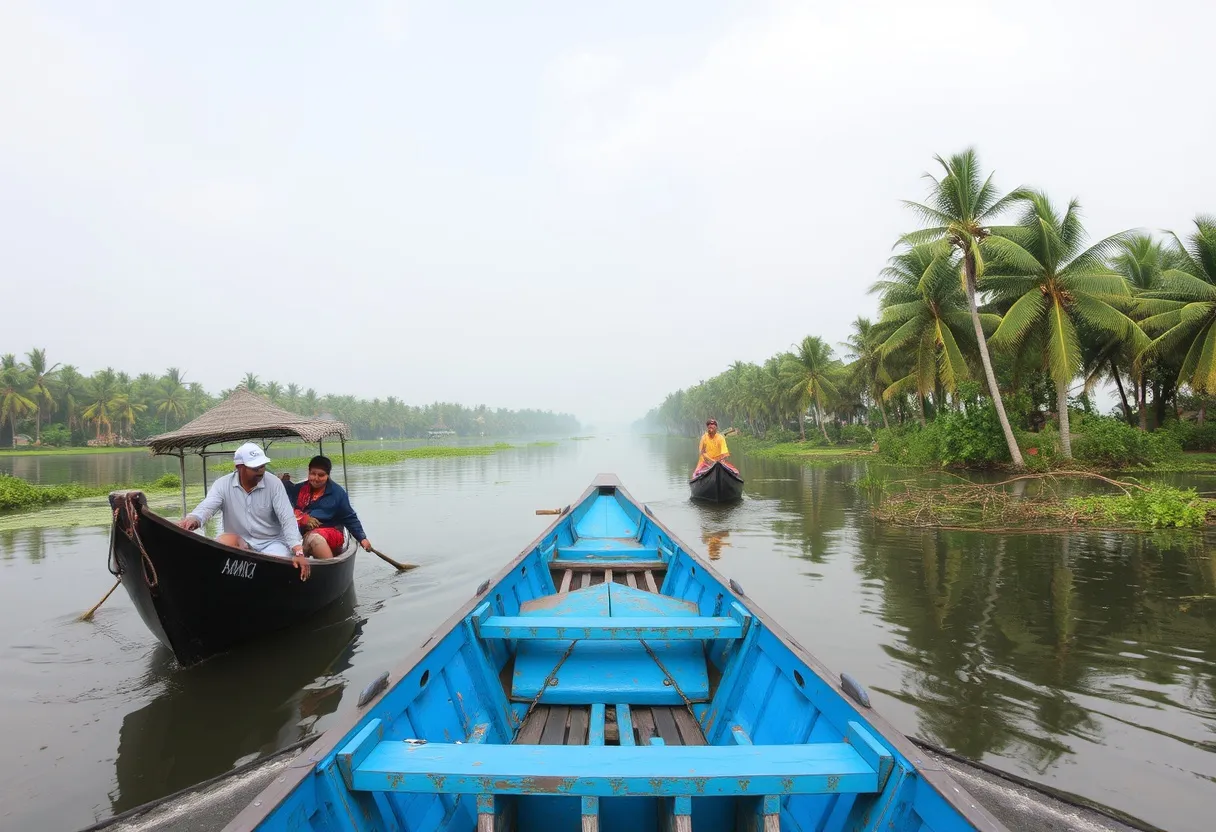
combine their plantation tour with a boat ride, gliding through narrow canals shaded by coconut palms. The experience combines relaxation with photo-clicking opportunities.
The Eco-Tourism Perspective
Coconut plantation tours in Alleppey promote eco-tourism showing tourists the importance of advocating sustainable practices by showcasing the processes that allow local farmers to work in harmony with nature.
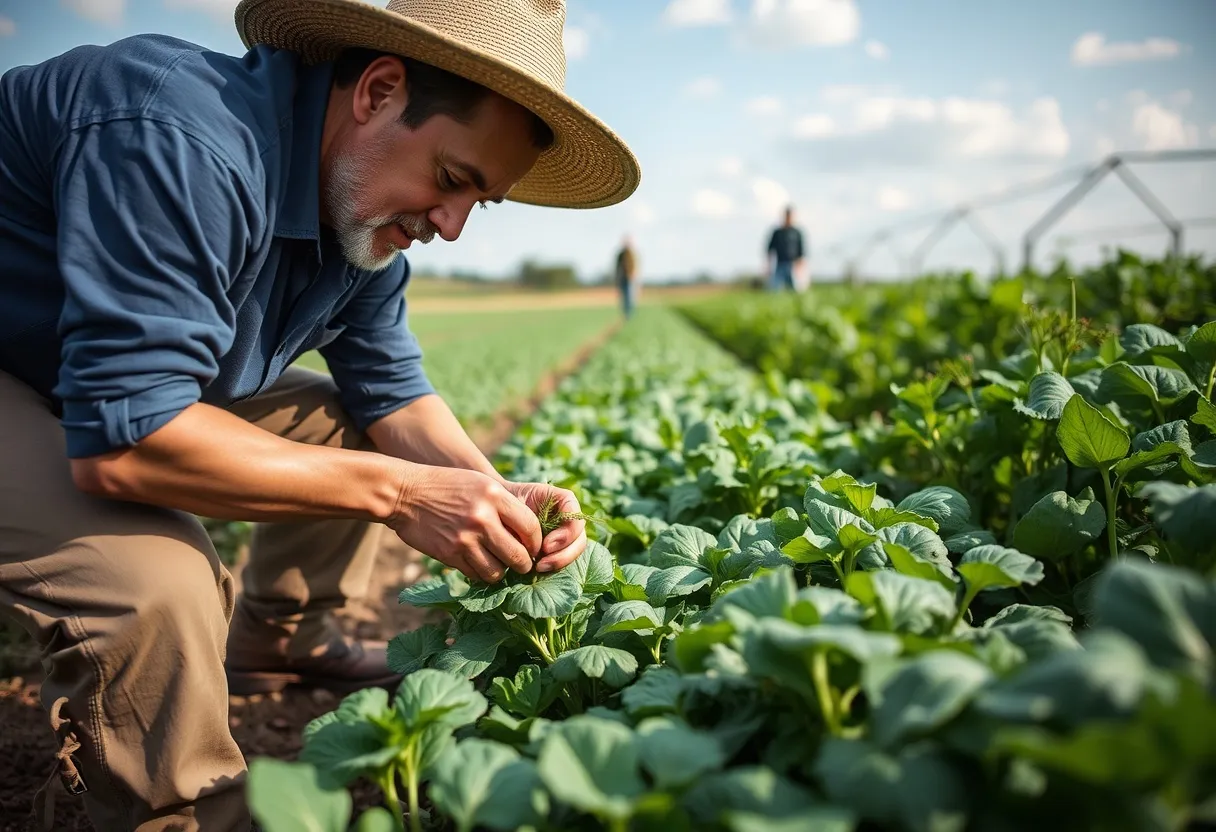
Additionally, the tours generate income for farming communities, fostering rural development.
By participating in these tours, you can contribute to preserving Kerala’s traditional farming heritage while gaining a deeper appreciation for the ecological and cultural significance of coconuts.
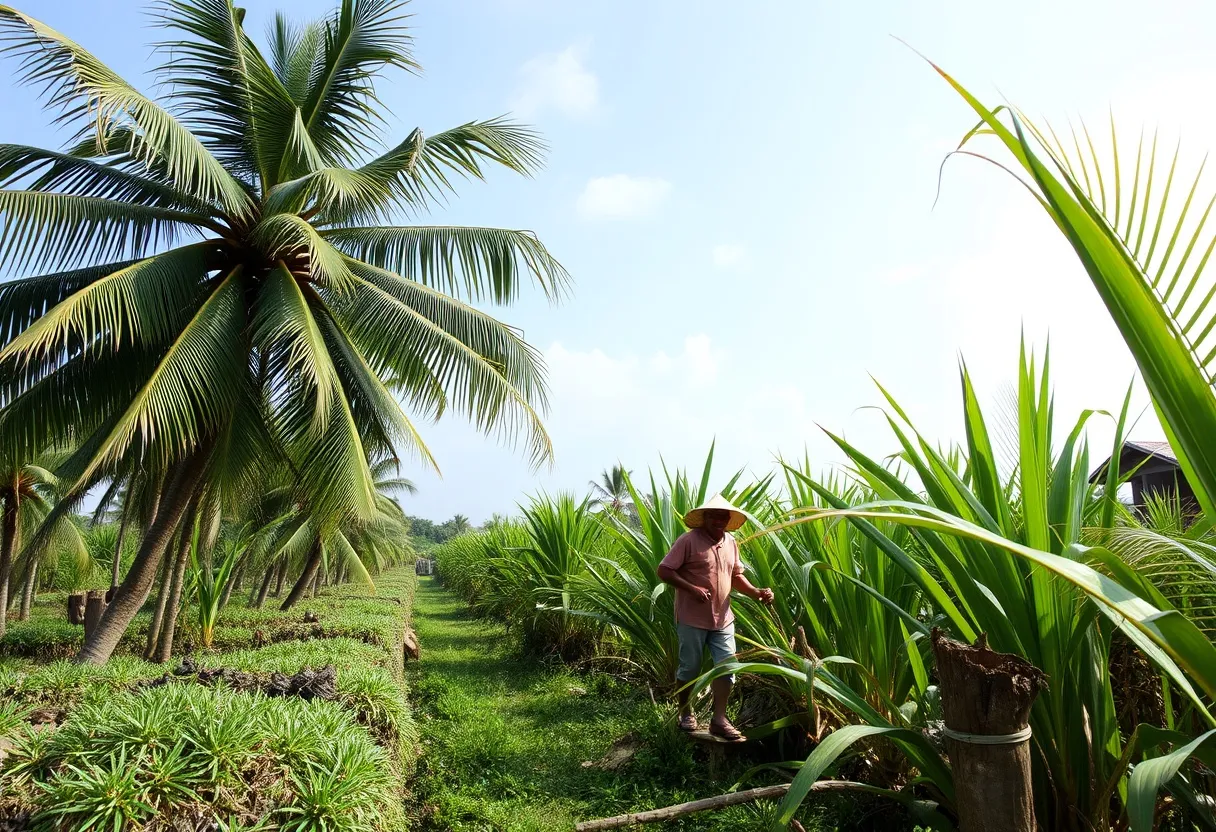
You can book a coconut plantation tour through local tour operators, and eco-tourism initiatives, or directly get in touch with some farms. The ideal time to visit is between September and March, when the weather is pleasant, and the monsoon has regrown the vegetation. When in Alleppey, let a coconut farm and plantation tour be the highlight of your itinerary.

Houseboat Cruises in Kerala: A Complete Travel Guide Explore Kerala’s tranquil backwaters on a houseboat

7 Reasons Why the Should Be on Your Kerala Itinerary Alleppey, often referred to as
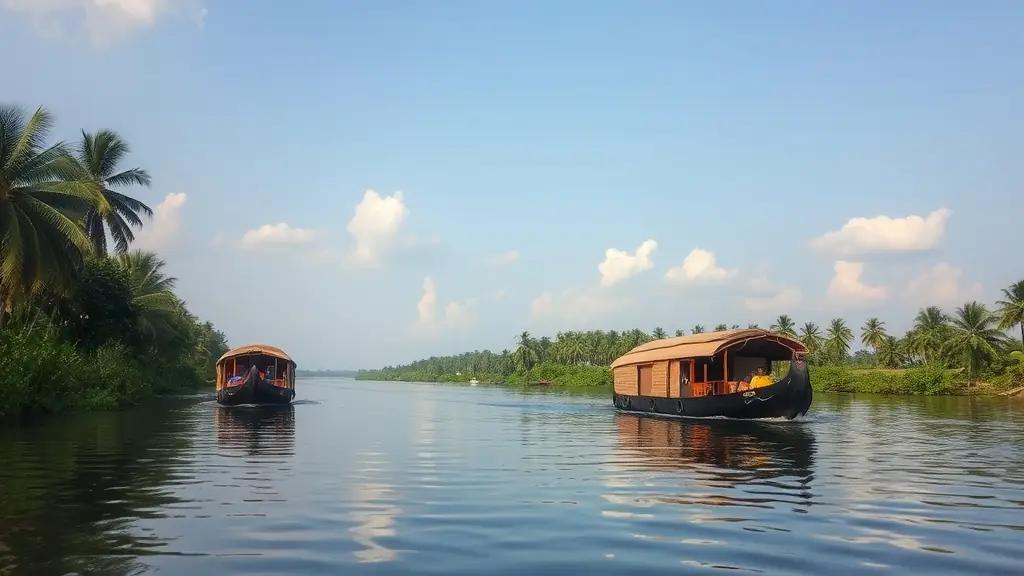
A date with Nestled along the tranquil backwaters of Kerala, Alleppey (Alappuzha) is a treasure
Beachfront Bliss in Kerala
Discover Akoya Beach Villa, Alleppey